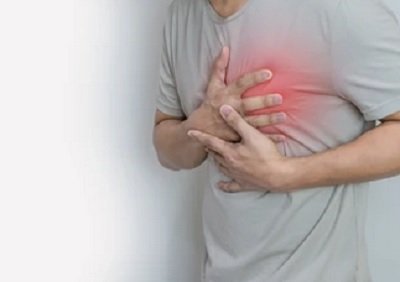IHL’s Health Pod provides preventive screening against heart attacks
July 04, 2022 | Monday | News
10-15% of people now suffer from heart attacks below the age of 40 years
Studies have proven that cardiovascular diseases CVDs affect Indians at least a decade earlier and in their most productive midlife years compared with the people of European countries. And the rising Waist Hip Ratio (WHR) is negatively correlated with the cardio-metabolic risk. The emerging risks of CVDs are caused due to the lack of a preventive screening ecosystem in India.
While speaking during a press conference on a study — Preventing Heart Diseases in Youth: Growing evidence of a link between Waist Hip Ratio (WHR), BP & BMI, and CVDs conducted by India Health Link (IHL), Dr Sonia Rawat, Director, Department of Preventive Health & Wellness, Sir Ganga Ram Hospital, New Delhi, said, “The quick screening IHL’s Health Pod provides preventive screening and is also helpful in clinical risk reduction. This ATM size Health Pod (‘hPod’) has been installed at our Sir Ganga Ram Hospital where patients get hassle-free screening with the instant report."
Dr Satyender Goel, Founder & CEO, India Health Link (IHL) said, “The Health Pod also complements National Digital Health Mission (NDHM) as it creates personalised Health accounts and IDs in line with the ABHA account.”
The study has brought out that there is a strong correlation between the increasing Waist Hip Ratio, BMI, BP, and the rising incidence of CVDs in the younger population. But in the study, one striking finding revealed that 80 per cent of hypertensive women are obese, and 67 per cent of them have a high waist hip ratio. And overall, women were found to be more at risk of undiagnosed cardiovascular problems than men.
Emphasising the need for focussing on preventive cardiology to move toward heart wellness, while speaking during a press conference on a study conducted by India Health Link (IHL), Dr HK Chopra, Sr Consultant Cardiologist, Medanta Moolchand Heart Institute, New Delhi Chairman, CME, Moolchand Medicity, New Delhi, President, World Heart Academy, Former National President, CSI, IAE said, “Persons having high visceral fat are more prone to heart attack and other CVDs. To fill the gap in preventive cardiology, quick service digital health kiosks like IHL's hPod demonstrate to be a panacea in filling the primary and preventive care gap in India, creating digital health records for the population in the informal sector."









